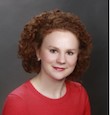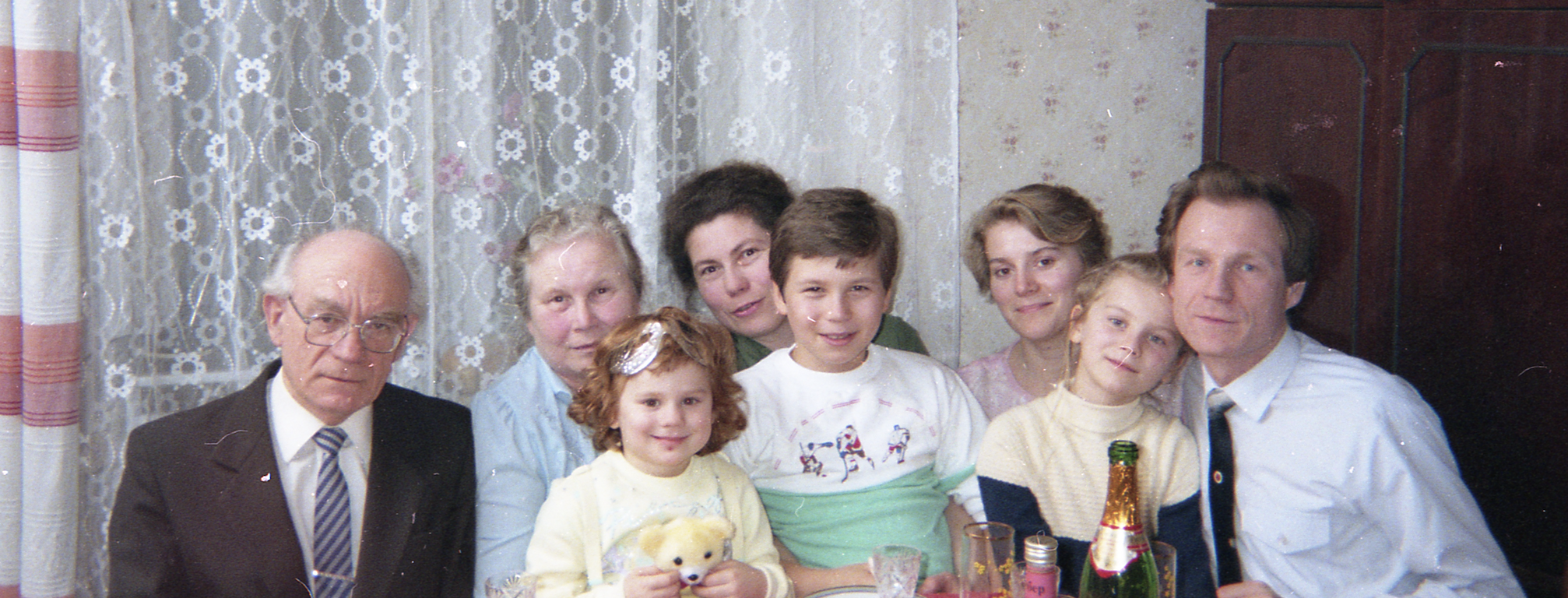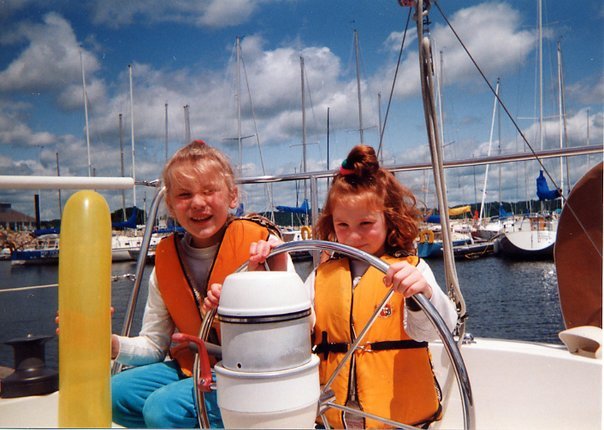Faculty Interview: Era Kryzhanovskaya, MD
A Conversation with Era Kryzhanovskaya, Professor in the UCSF Health Division of General Internal Medicine
Russian naming conventions are complex: “-ov,” “-ev,” “-kin,” “-ich,” “-ko,” “-ina,” and “-skaya.” What do you know about your name, its meaning and origins?

Assistant Professor
My parents told me that my surname means “cross” in Polish so we are “People of the Cross.” My grandpa was from Poland and my mom’s family was Ukrainian. When I went to Kiev and visited the cemetery where our family is buried, I found that our name was spelled in various ways so there are more consonants, maybe an extra “z” or other spellings and pronunciations. Because my name can be hard to pronounce for non-Russian speakers, I usually introduce myself to patients as “Dr. K.” primarily for the others’ ease.
Where were you born and raised? Tell me about your family.

I was born in Kiev, in the Ukraine, and moved to Charlottesville, Virginia, when I was five years old. I’ve only known two cities in my adult life: Charlottesville and San Francisco – cities that I call home. I think about my family – my parents, sister and cousins – like a pomegranate, something that we eat a lot in our culture. There’s a special and precise way of opening the fruit without unroofing the seeds inside. So I think our dynamic is intricate, intertwined and complementary. Both of my parents were cardiologists and their story is that they met in medical school in the Ukraine and, when they came here, my dad got a job at UVA and decided to bring our family. I’ve seen the sacrifices they’ve made to be here and not practice Medicine with patients. Instead, they found other roles in teaching and research. Their sacrifices allowed me to do everything that I’ve done and, while I want to make them proud, Medicine is what I love. I am very proud and very grateful that they are still one of my primary resources. Growing up, I heard more about aorta and a-fib than politics or pop culture!
You were just a little girl, but what do you recall of Kiev?

I have a very specific memory of my maternal grandfather walking me from preschool to our apartment and seeing the blossoms on the flowering trees. I remember Kiev as being a very beautiful, gorgeous city, and I have tried to find my preschool when I’ve returned to visit. The playground near our apartment is still there and looks the same, the structural things are unchanged, but I cannot find my flowering trees. Kiev and Charlottesville are very similar and both have the same four seasons, and I love knowing that spring is coming because there are cherry blossoms and dogwood. To this day, nothing beats a Virginia fall in its glory when you see the colors of the trees change.
What have you learned in subsequent visits to Ukraine?
I’ve learned much more about my parents’ political leanings and the political landscape, and that of their family and friends, who remained in Ukraine throughout the civil war, and from those in Moscow or St. Petersburg. It’s a nuanced situation and I’ve found that what I learn here is somewhat of a watered-down understanding of what’s happening on the ground over there. I visited last year, during the time of the World Cup when people were on their best behavior, and I often got a Russian citizen discount because I was speaking Russian and no one guessed that I was American. When I went to the Ukraine and spoke Russian, I got an extra look or so, but not the worst treatment. I wondered if they thought I was European or a Russian who expected to be addressed in Russian, but nobody asked me outright. I understand Ukrainian and can respond, but cannot converse fluently.
Whose advice do you completely trust?
It’s impossible for me to not say, my "mom.” She always knows the right thing to say at the exact moment and she always reframed everything in a way that appealed to my mind. Also, my paternal grandmother; we became best friends when she came from Russia to live with us in Charlottesville after my grandpa died. We cuddled at naptime and I would ask if I could read her something and she always replied, “Only if you read to me in Russian.” She was the main reason that I retained my Russian language; she would dictate things that I would write and then correct it. She made me watch her favorite Russian movies and read her favorite Russian books. She always, even after she suffered a stroke, encouraged me to trust my instincts, including going to medical school at UVA.
Your academic and clinical interest is in treating substance abuse and addiction. What is your take on how we as a society got to a place where substance abuse and addiction is rampant in every socio-economic sphere?
I think that, somewhere along the way, we isolated ourselves enough from a culture and from ourselves that it’s possible that we need to deal with isolation. I treat patients with opioid use disorder for which there can be treatment and one of the things I often hear from them is that they feel more normal after taking a prescribed medicine. Whatever created that void that needs to be filled, it saddens me that the void is there. More recently, I think it has something to do with a combination of social media and technology; that people don’t feel normal unless they are reassured that they are wonderful and amazing. It’s a complex issue to figure out where that need for reassurance comes from. Our pharmacology or treatment plan hasn’t always caught up, but we try to reassure patients that we are with them on this journey.
In your own life, what are your constructive or joyful addictions?
I have a joyful addiction to exercise, especially group exercise, a holdover from playing team sports like basketball, volleyball and dance classes. I’ve wanted to recreate that team dynamic in every aspect of my life, including Medicine, in having an amorphous experience. I love being on a court or on a beach and I love being with people who have a team goal. I struggle whenever I go on vacation because I am not good at doing crunches by myself without thinking where I will have lunch because food is my other joyful addiction. Here in the Bay Area, where food is more costly than in Charlottesville, I’ve made it a priority to, at least once a quarter, to go to a nice restaurant with friends and splurge on a special evening. I make a mean pomegranate cheesecake and am trying to get Russian recipes from my mother, who’s the best cook I know (she makes an incredible duc), but it’s hard because she doesn’t always recall the specific measurements.
Thank you, Era.